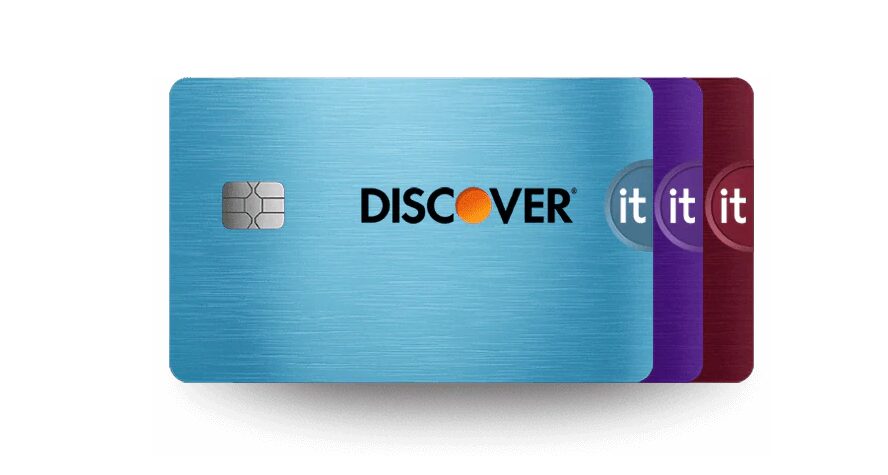How to Protect Your Finances and Data Using Financial Technology

Understanding the Importance of Digital Financial Protection
In today’s rapidly evolving digital landscape, protecting your finances and personal data has become more crucial than ever. As individuals increasingly rely on online banking, digital wallets, and investment platforms, the need for robust security measures grows. With the rise of financial technology, or fintech, there are innovative solutions that not only empower individuals to manage their money effectively but also to secure their sensitive information against potential threats.
Fintech solutions integrate advanced features designed to enhance financial protection. Key among these features is encryption technology, which plays a pivotal role in safeguarding data during transactions. Encryption transforms data into an unreadable format, ensuring that even if intercepted, it remains unintelligible to unauthorized users. For example, reputable financial institutions utilize advanced encryption protocols, such as AES (Advanced Encryption Standard), to protect user data in their online services.
Another essential feature is two-factor authentication (2FA), which provides an added layer of security for account access. With 2FA, users are required to verify their identity through two distinct methods—typically a password and a smartphone authentication app or a text message code. This significantly reduces the risk of unauthorized access, even if a password is compromised.
Real-time monitoring also enhances financial protection by enabling users to track their spending and instantly identify suspicious activities. Many fintech applications now provide instant alerts on transactions, allowing users to take immediate action if they detect any unauthorized activity. In an era where fraud can happen within minutes, such capabilities are invaluable.
Furthermore, the implementation of breach alert systems is critical in notifying users of potential fraud or data leaks. For example, several fintech companies now offer services that monitor dark web activity, alerting users if their personal information has been compromised or is being sold illicitly.
In addition to leveraging fintech solutions, adhering to certain best practices can significantly bolster your financial data protection. Regularly updating passwords is a fundamental strategy; individuals should ensure that their passwords are complex, unique, and changed frequently to thwart potential breaches. Likewise, utilizing reputable financial apps is crucial. It is advisable to research the developer’s background and user reviews to ensure that the application is trustworthy and has a strong security track record.
Staying informed about cyber threats is equally important. By being aware of the latest scams and security vulnerabilities, users can take proactive measures to protect their finances. Subscribing to cybersecurity newsletters or following trusted security blogs can equip individuals with the knowledge needed to identify and avoid potential risks.
In conclusion, integrating these fintech strategies and practices into your financial management routine enables individuals to effectively shield their finances and personal data from emerging threats. By employing advanced security features and adhering to best practices, you ensure greater peace of mind in an interconnected world where digital transactions are becoming increasingly ubiquitous.
Leveraging Fintech Tools for Enhanced Security
To effectively protect your finances and personal data, leveraging the right fintech tools is essential. Several digital solutions have emerged, specifically designed to provide enhanced security while facilitating financial management. By understanding and utilizing these tools appropriately, individuals can create a robust defense against potential threats.
One of the most significant advancements in the fintech sector is the use of blockchain technology. Originally created for cryptocurrencies, blockchain offers a decentralized method of securing data. Transactions executed on a blockchain are verified by a network of computers rather than a centralized authority, making them inherently more secure and tamper-proof. This transparency is particularly beneficial in preventing fraud, as all parties involved can see and verify transaction details in real-time.
Additionally, some fintech applications incorporate artificial intelligence (AI) to enhance their security protocols. AI can identify unusual patterns in spending behavior and alert users to potential fraud. For instance, if a user’s account displays activity from a location not typically associated with their transactions, the AI system can trigger alerts or temporarily freeze the account until identity is confirmed. This proactive approach deters fraud and allows for quick remediation of any security issues.
When choosing fintech tools, it is crucial to consider their security features. Here are some important aspects to evaluate:
- Strong Encryption: Verify if the platform uses recognized encryption standards to protect sensitive data.
- Transparent Privacy Policies: Ensure that the fintech company provides clear guidelines on how your data is used and stored.
- Regular Security Audits: Look for certifications or reports indicating that the platform undergoes regular security assessments.
- User Reviews and Reputation: Consider feedback from other users and industry reviews to gauge the platform’s reliability and security history.
Moreover, many fintech services are designed to work seamlessly with traditional banking institutions, providing integrated security measures that enhance user confidence. For example, some digital banking services offer mobile apps with biometric security features, such as fingerprint or facial recognition locking mechanisms, to prevent unauthorized access. This added layer of security minimizes the risk of identity theft and unauthorized transactions.
Another valuable fintech tool is the utilization of financial aggregation services. These applications allow users to monitor multiple bank accounts, investment accounts, and even credit cards from a single interface. By centralizing financial data, users can more easily detect inconsistencies or unauthorized transactions, enhancing their ability to respond to potential fraud. However, it is vital to choose aggregation services that prioritize security and employ strong encryption methods for data protection.
In summary, leveraging advanced fintech tools can significantly enhance your financial security. Understanding the technology behind these solutions and incorporating best security practices will empower you to safeguard your finances and data effectively. As reliance on digital transactions grows, being proactive about your security is no longer optional but a necessity in today’s financial landscape.
Best Practices for Incorporating Fintech in Your Financial Strategies
While leveraging technological advancements is vital for protecting your finances and data, it is equally important to adopt best practices when incorporating fintech into your financial strategies. This requires a comprehensive understanding of the digital landscape and a consistent application of security measures to ensure maximum benefits without compromising your data integrity.
First and foremost, it is advisable to maintain strong and unique passwords for every fintech application you utilize. Utilizing a password manager can aid in generating complex passwords that combine letters, numbers, and symbols, making unauthorized access to your accounts significantly more difficult. Furthermore, enabling multi-factor authentication (MFA) is crucial for an additional layer of security. Many fintech platforms allow users to verify their identity through secondary methods, such as SMS codes or authenticator apps, ensuring that even if a password is compromised, unauthorized access remains thwarted.
Staying informed about cybersecurity threats is another critical aspect of safeguarding your finances. Regularly monitor news related to data breaches or emerging cyber threats that may affect the fintech services you utilize. A proactive approach allows you to take necessary precautions, such as changing passwords or adjusting security settings promptly. Additionally, consider enabling transaction notifications that alert you of any account activity. This feature allows for immediate detection of suspicious transactions, enabling you to act quickly before any significant damage occurs.
When engaging with fintech applications, it’s essential to be aware of the permissions and data access you provide. Always review the permissions required by the app and consider whether the access they request is justified. For instance, a budgeting application may require access to your financial information, but it should not need access to your contacts or microphone. Conducting due diligence ensures you retain control over your data.
Investing in Cybersecurity Measures
Given the rising number of cyber threats, investing in additional cybersecurity measures is a prudent strategy for consumers. Options such as VPN services can add an extra layer of encryption to your online activities, particularly when browsing on public Wi-Fi networks. Public connections are notoriously vulnerable, and a VPN can help safeguard your sensitive financial data from potential hackers.
Furthermore, utilizing identity theft protection services can provide peace of mind by continuously monitoring for any unauthorized use of your personal information. These services can alert you about unusual activities, including credit report changes or new accounts opened in your name, allowing you to take timely action. Recent studies indicate that identity theft can take longer to resolve than expected, often leading to financial repercussions; therefore, proactive monitoring can substantially mitigate these risks.
Additionally, regular software updates should not be overlooked. Keeping your devices and applications up-to-date ensures that you benefit from the latest security patches and improvements. Software developers frequently release updates to address vulnerabilities, and by regularly updating your devices, you diminish the risk of exploitation from cybercriminals who may attempt to gain access through outdated systems.
Lastly, consider educating yourself about the fintech tools you utilize. Many platforms offer tutorials or resources to help users better understand their features and security measures. Taking time to learn about the technology can empower you with the knowledge necessary to maximize their benefits while minimizing risks. Engaging in forums or community discussions can also provide valuable insights from others’ experiences and tips for safe practices.
Conclusion
In an era where financial technology plays an increasingly pivotal role in managing personal finances, effectively protecting your finances and data has never been more crucial. By leveraging fintech solutions responsibly and incorporating robust security practices, individuals can harness the benefits of technology while minimizing risks associated with data breaches and cyber threats.
Establishing a strong foundation for your financial security begins with maintaining unique passwords and utilizing multi-factor authentication. Staying informed about emerging cybersecurity threats can empower users to respond swiftly to vulnerabilities. Moreover, understanding the permissions required by different applications ensures that you retain control over your sensitive data.
Investing in additional cybersecurity measures, like VPN services and identity theft protection, further bolsters your defense against unauthorized access. Regularly updating software guarantees that you are protected from known exploits, while continuous education about fintech tools enhances your ability to navigate the digital landscape effectively. By engaging with available resources, community forums, and existing tutorials, users can refine their strategies, ensuring they are both informed and proactive in safeguarding their financial well-being.
In conclusion, the symbiosis of fintech and sound security practices empowers individuals to take charge of their financial futures confidently. As technology evolves, remaining vigilant and proactive in protecting both your finances and your personal data will be essential to maximizing the advantages fintech offers in today’s fast-paced and ever-changing financial environment.
Related posts:
How to Optimize Your 401(k) and Ensure a Comfortable Retirement
The Impact of Cryptocurrency Trading Platforms on the Saving and Investment Behavior of Americans
How to Use Disability Insurance to Protect Your Income and Financial Assets
How to reduce costs with higher education and student financing
How Financial Education in Schools Can Transform the Economic Future of Young Americans
How to Use Sustainable Investments to Align Your Values

Beatriz Johnson is a seasoned financial analyst and writer with a passion for simplifying the complexities of economics and finance. With over a decade of experience in the industry, she specializes in topics like personal finance, investment strategies, and global economic trends. Through her work on Web Dinheiro, Beatriz empowers readers to make informed financial decisions and stay ahead in the ever-changing economic landscape.







